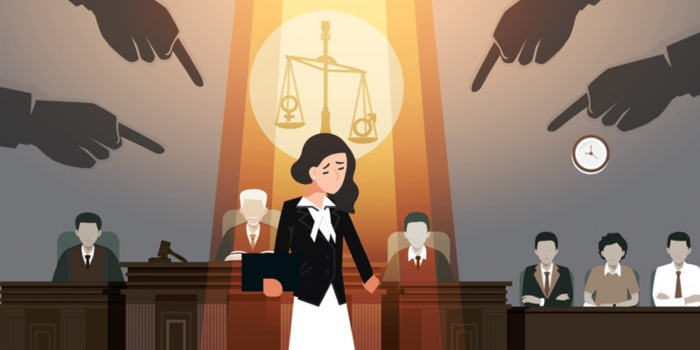
Service
India has come a long way with the law in the last few decades, but the real question is: Are the laws protecting women really effective to protect their dignity, safety, and rights in their day-to-day lives? Even with strong laws on paper, many women continue to suffer from harassment, violence, discrimination, and legal apathy. That is where organizations like Together Thrive intervene—not merely to demand better policies, but to make the law implementable and reachable for everyone.
In the matter of laws protecting women, India boasts one of the widest legal provisions globally. From women’s protection within the home and the workplace to their rights over property, education, and healthcare—there are many laws to help secure their well-being. But it is all based on the awareness of the people, enforcement by the courts, and availability of resources.
Together Thrive continuously emphasizes that education and outreach are as vital as legal change. Unless women know their rights, they cannot claim them. With increasing cases pertaining to workplace stress, domestic matters, and online abuse, a renewed push is now necessary to toughen the laws, eliminate gaps in implementation, and bring justice to those most at risk. This article works to investigate the best laws protecting women, with particular emphasis on topics such as mental harassment law in India and general human rights of women in India.
Also Read : https://togetherthrive.info/social-issues/empowering-women-understanding-women-safety-laws-in-india
One of the most important but least recognized areas covered by laws protecting women is the application of the mental harassment law in India. While physical violence may be simpler to recognize and record, mental harassment, whether at home, in a relationship, or at work, can also be as destructive and much harder to establish.
In spite of all these laws, awareness and social stigma remain a major hindrance. Women are not aware they are being subjected to psychological torture or they do not want to report for fear of society’s pressure. Together Thrive has had the privilege of working with various outreach campaigns that inform women on how to identify mental abuse and report through the legal system. They firmly advocate that emotional distress should never be justified or ignored.
The inclusion and strengthening of the mental harassment law in India is essential for creating a society that does not tolerate emotional abuse. When implemented effectively, it not only supports the emotional well-being of women but also enhances the overall impact of existing laws protecting women across the country.
The larger philosophy of human rights of women in India serves as another pillar for the laws protecting women. International agreements such as the UN Convention on the Elimination of All Forms of Discrimination Against Women (CEDAW), to which India is a signatory, and the Constitution both uphold these rights.
Some of the prominent human rights of women in India include:
Nonetheless, obstacles such as gender bias, discriminatory pay, small-scale representation, and lack of services ensue to this day in the realization of these rights. As a corrective, we advocate for combined community programs that integrate legal education and economic empowerment. They hold that until the women know their civil as well as legal rights, the laws protecting women cannot fulfill its full potential.
Grassroots consciousness and institutional responsibility are two aspects of the same coin. If women are aware of their human rights in India, they would be more disposed towards demanding justice, resisting discrimination, and bringing about long-term social change.
Also Read : https://seoserviceindia.in/women-safety-laws-in-india/
The Indian legal framework has developed many strong legislations over time to safeguard women against discrimination, violence, and exploitation. Some of them are:
These legal resources are lifelines for women experiencing abuse, inequality, and exploitation. But without effective implementation and education, even the best-intentioned legislation becomes ineffective. That’s why we remain working at the point of intersection between legal reform and human advocacy.
They work with lawyers, social workers, and teachers to ensure that women in urban and rural India are able to recognize, understand, and exercise their rights. Their function as a third-party facilitator plays a critical role in transforming legal protection into lived experience.
The laws protecting women are the foundation of an equal society. But legislation is not sufficient by itself—it requires effective lobbying, easier access, and large-scale legal awareness to be most effective. Whether enforcing the mental harassment law in India or promoting human rights of women in India, the aim must always be clear: to help every woman live in dignity, security, and opportunity.
Together Thrive is also a driving force behind this endeavor, making voices heard, raising awareness, and closing the gap between policy and practice. What their efforts emphasize is that justice is not merely courts and cases—it’s about developing a culture in which each woman is aware of her rights and confident enough to demand them.
Leave a Reply